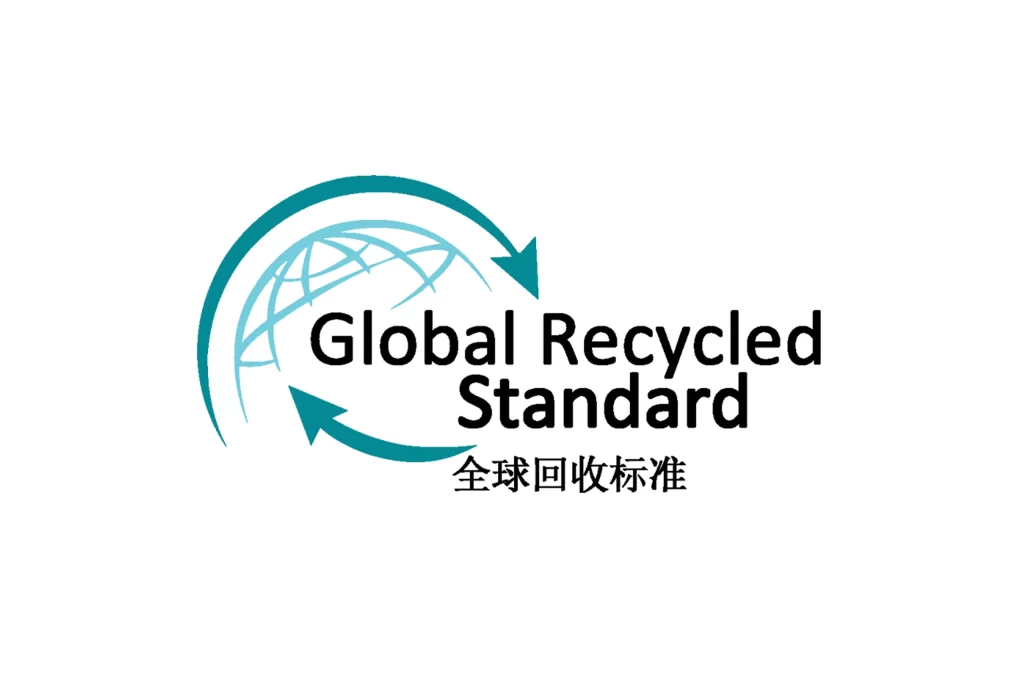In the fiercely competitive market of modern business, certification and qualification has become an important competitive advantage for enterprises to stand out among numerous competitors, as sustainable development and environmental awareness are increasingly valued. Therefore, this article will elaborate on the Global Recycling Standard (GRS) certification, introducing its origin, content, significance in the plastic products industry, and advantages.
1、 The Origin of GRS Certification
The Global Recycling Standard (GRS) certification was launched by Textile Exchange (formerly Organic Exchange) in 2008. GRS is a certification for textiles and related products aimed at ensuring the sustainable production and use of recycled fiber materials. GRS certification originates from the concern for global resource utilization and environmental protection, covering the requirements of environmental protection and social responsibility, and has become an important tool for promoting sustainable development in the textile industry.
2、 Content of GRS certification
The core content of GRS certification mainly includes the following aspects:
Raw materials: GRS requires that at least 50% of the fibers in textiles must be recycled fibers, such as recycled polyester, recycled cotton, etc.
Production process: There are clear requirements for the production process of recycled fibers, including environmental protection and social responsibility standards.
Chemical management: There are restrictions on the use of chemicals to prevent harmful substances from causing damage to the environment and human health.
Environmental management: Enterprises are required to reduce resource consumption, conserve energy, and reduce carbon emissions.
Social responsibility: Emphasize the protection of labor rights, fair pay, and a safe working environment.
Product information transmission: The product label must include GRS certification information to ensure that consumers obtain authentic and reliable environmentally friendly products.
3、 The significance of GRS certification in the plastic product industry
GRS certification not only applies to the textile industry, but also plays an important role in the plastic products industry. Against the backdrop of increasingly serious plastic pollution, the plastic products industry is facing challenges in reducing plastic waste and promoting sustainable environmental development. Obtaining GRS certification can enable plastic product enterprises to adopt more recycled plastic raw materials, achieve resource recycling, reduce dependence on traditional petrochemical plastics, and reduce carbon emissions. This helps to improve the sustainability of the plastic products industry, promote the development of the plastic circular economy, and enhance corporate image to meet consumer demand for environmentally friendly products.
4、 The advantages and effects of GRS certification
Market Access Advantage: GRS certification is an internationally recognized environmental certification, which can help enterprises enter international markets such as Europe and America, and increase export opportunities.
Enhancing competitiveness: GRS certification can demonstrate a company’s efforts in environmental protection and sustainability, increasing its advantage in a fiercely competitive market.
Environmental responsibility: Obtaining GRS certification means that the enterprise actively fulfills its environmental responsibility in the selection of raw materials and production process, and contributes positively to the environment and society.
Consumer recognition: GRS certification meets the needs of consumers for environmentally friendly and sustainable products, helps establish a good brand image for the enterprise, and attracts more consumers.
5、 The current situation of implementing GRS certification in China
At present, China’s awareness of environmental protection and sustainable development is gradually increasing, and more and more enterprises are paying attention to GRS certification and taking measures to improve the sustainability of their products. Some Chinese textile and plastic product enterprises have obtained GRS certification and achieved significant market results. With the increasing global demand for sustainable development, it is expected that the number of Chinese companies obtaining GRS certification will continue to increase in the future.
6、 Application method
Supply Chain Transparency: GRS certification aims to ensure that the sources of recycled fibers used in products are traceable and track the entire supply chain process from raw material collection to the final product. This includes the collection, processing, production, sales, and distribution of recycled materials.
Sustainability verification: Through GRS certification, companies can demonstrate that their products meet the requirements of sustainable development, as the use of recycled fibers helps reduce resource consumption and environmental impact.
The situation where GRS certification certificate is required:
Producers: Textile and clothing manufacturers typically seek GRS certification to demonstrate the use of recycled fibers in their products and ensure their sustainability and environmental friendliness. This helps them establish partnerships with sustainable brands and retailers, and convey sustainability messages to consumers.
Brands and retailers: Many brands and retailers hope to sell products that meet sustainable standards. By obtaining GRS certification from suppliers, they can ensure that the source of recycled fibers in their products is trustworthy and meets their sustainable procurement and development goals.
Tendering and procurement: In certain procurement contracts and standards, suppliers may be required to provide GRS certification certificates to ensure that the products they provide meet sustainability requirements. This may include government procurement, corporate procurement, and procurement from other institutions.
Overall, GRS certification is highly valuable for businesses and brands that wish to demonstrate the use of recycled fibers in textile products. It helps to ensure the sustainability of products, enhance consumer trust, and meet the requirements of sustainable procurement.

